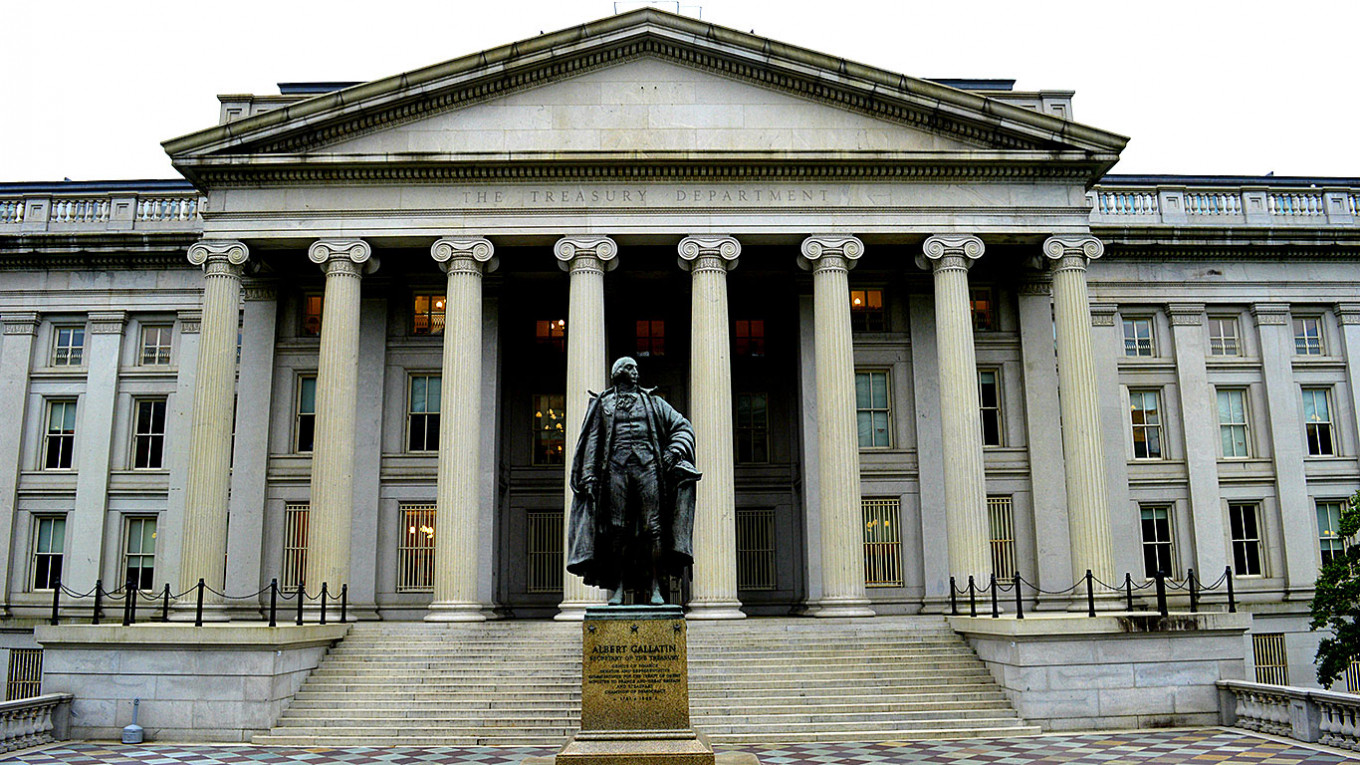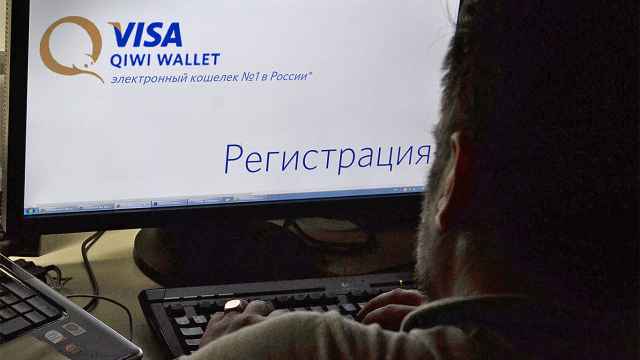The United States starting Tuesday will bar Russia from making debt payments using funds held at American banks, ramping up the economic pain on Moscow over its invasion of Ukraine, the U.S. Treasury said.
The latest move increases the risk the country will not be able to pay its obligations.
"Beginning today, the U.S. Treasury will not permit any dollar debt payments to be made from Russian government accounts at U.S. financial institutions," a Treasury spokesperson told AFP.
The official later clarified that the ban started on Monday when Moscow was due to make a debt payment.
"Russia must choose between draining remaining valuable dollar reserves or new revenue coming in, or default."
Debt payments previously had been exempt from the near complete lockdown that severed Russia from the global financial system, and the country had made several payments to foreign creditors, but the exemption expires in May.
The country also has been allowed to receive payments for oil and gas sales, a key source of foreign currency, although the U.S. has banned imports from Russia.
But the White House on Monday warned more sanctions were coming on Russian leader Vladimir Putin following the emergence of alleged atrocities in areas of Ukraine formerly occupied by Moscow's troops.
The latest U.S. move "will further deplete the resources Putin is using to continue his war against Ukraine and will cause more uncertainty and challenges for their financial system," the Treasury official said in a statement, noting the country "is facing a recession, skyrocketing inflation, (and) shortages in essential goods."
Moscow on Monday was due to make an $84 million interest payment, as well as paying off the remainder of a maturing $2 billion bond. If it does not pay the funds by the end of the 30-day grace period it will be in default.
JPMorgan has processed five debt payments since the Russian invasion prompted Washington and Western allies to impose increasingly severe financial sanctions.
The U.S. measures froze the government's stockpile of $300 billion in foreign currency reserves held abroad.
The Treasury official called the sanctions targeting Russia's Central Bank as "one of the most potent actions of the 700+ sanctions we've imposed."
Major ratings agencies have downgraded the country, saying the risk of a debt default is rising.
Russia last defaulted on its foreign currency debt in 1918, when Bolshevik revolution leader Vladimir Lenin refused to recognize the obligations of the deposed tsar's regime.
But the government missed payments on domestic, ruble-denominated debt in 1998 amid a financial crisis.
In the wake of that crisis, Moscow amassed about $600 billion in reserves, largely from oil and natural gas sales.
The government owes about $40 billion in dollar- or euro-denominated debt, though only half of that is held by foreign creditors — a relatively small amount given the size of the economy and its oil earnings.
A Message from The Moscow Times:
Dear readers,
We are facing unprecedented challenges. Russia's Prosecutor General's Office has designated The Moscow Times as an "undesirable" organization, criminalizing our work and putting our staff at risk of prosecution. This follows our earlier unjust labeling as a "foreign agent."
These actions are direct attempts to silence independent journalism in Russia. The authorities claim our work "discredits the decisions of the Russian leadership." We see things differently: we strive to provide accurate, unbiased reporting on Russia.
We, the journalists of The Moscow Times, refuse to be silenced. But to continue our work, we need your help.
Your support, no matter how small, makes a world of difference. If you can, please support us monthly starting from just $2. It's quick to set up, and every contribution makes a significant impact.
By supporting The Moscow Times, you're defending open, independent journalism in the face of repression. Thank you for standing with us.
Remind me later.






